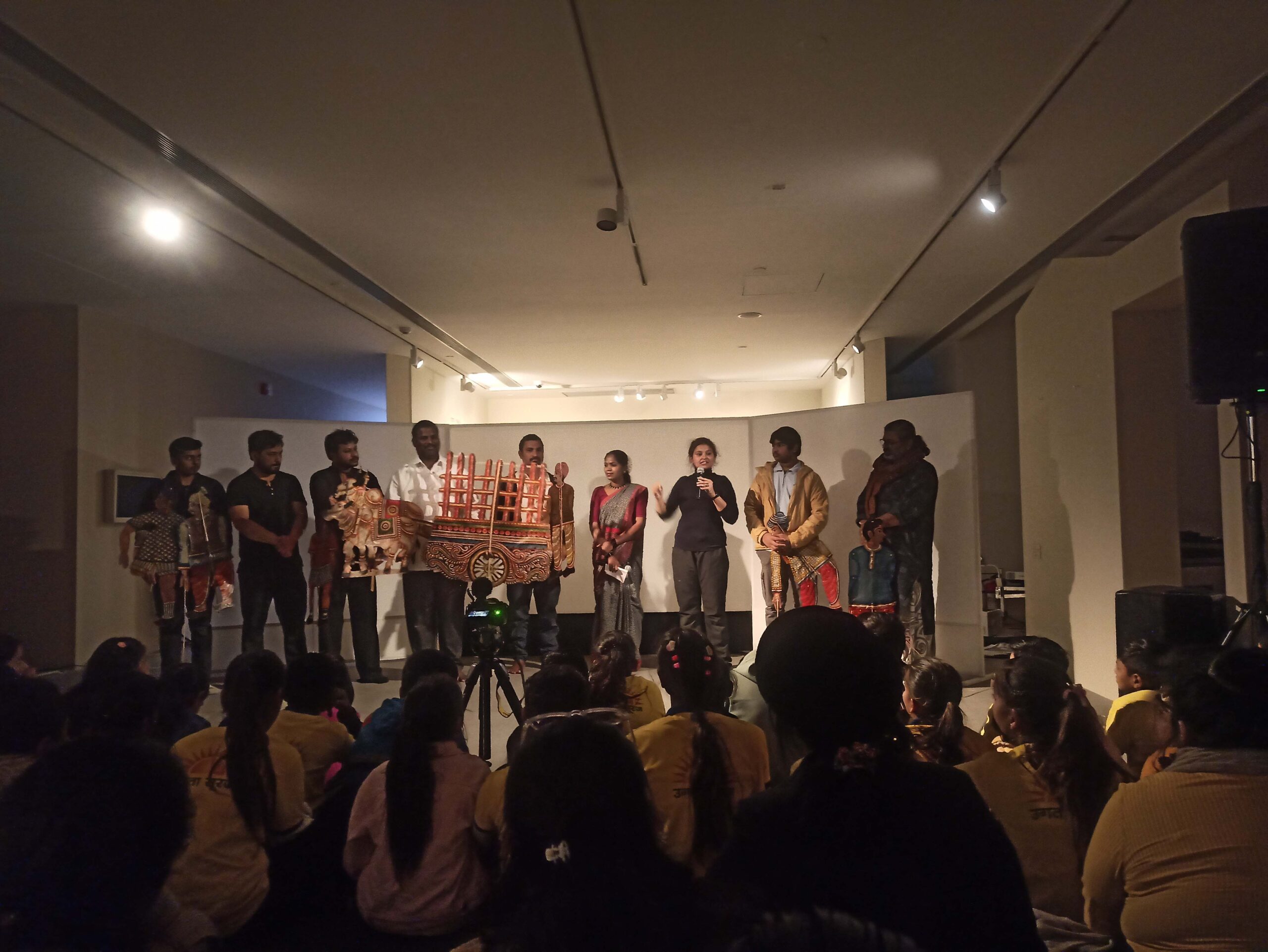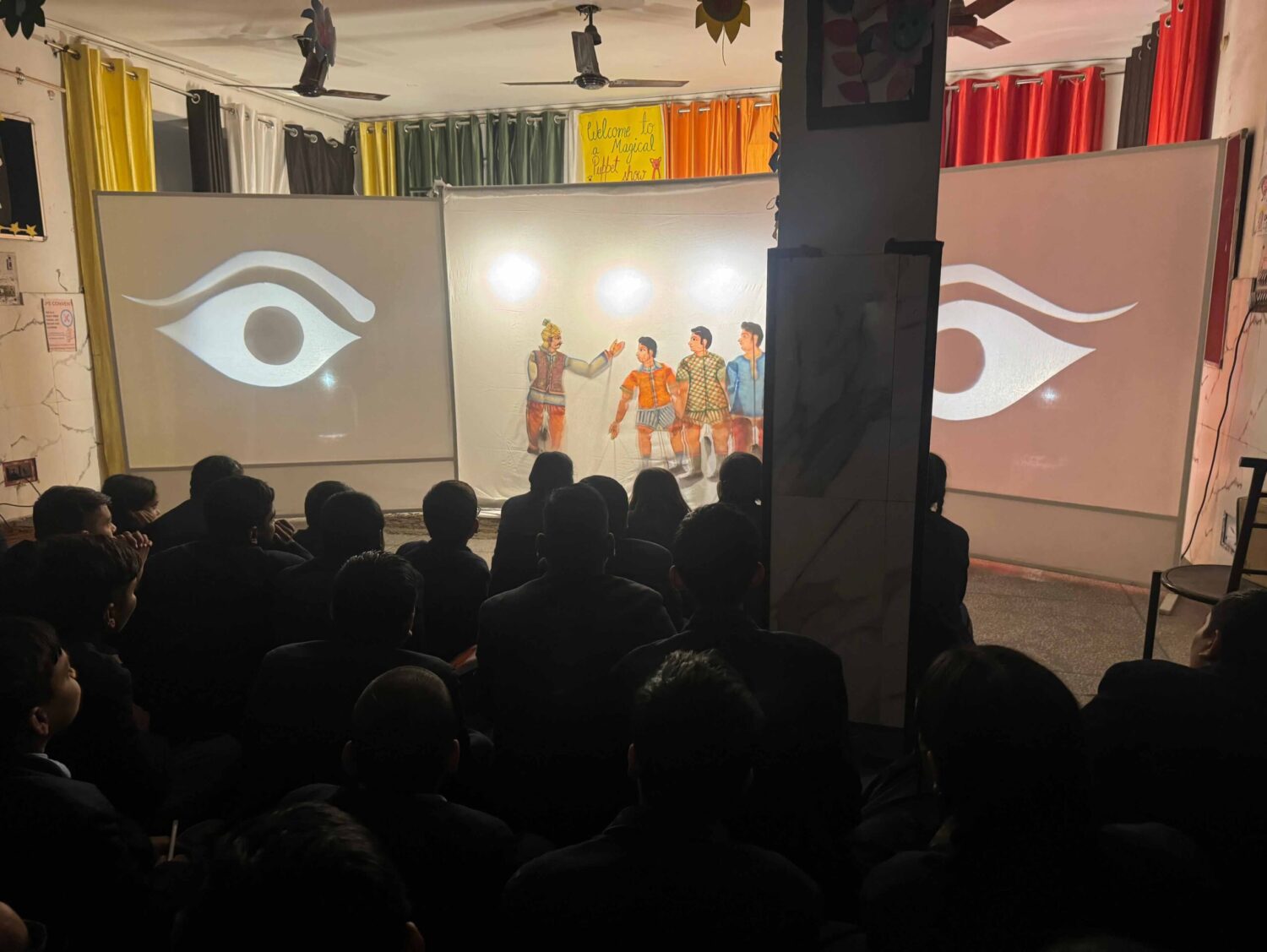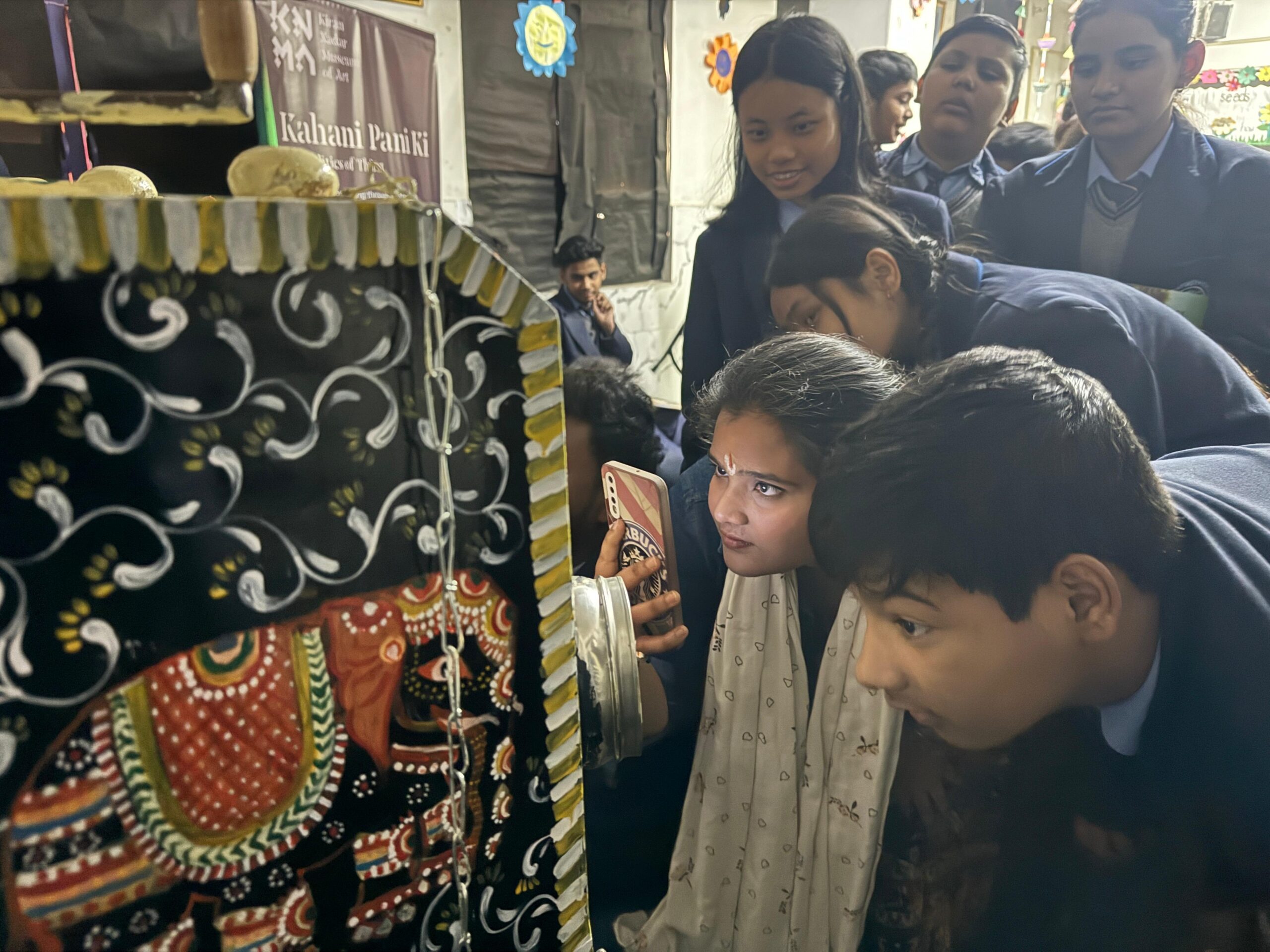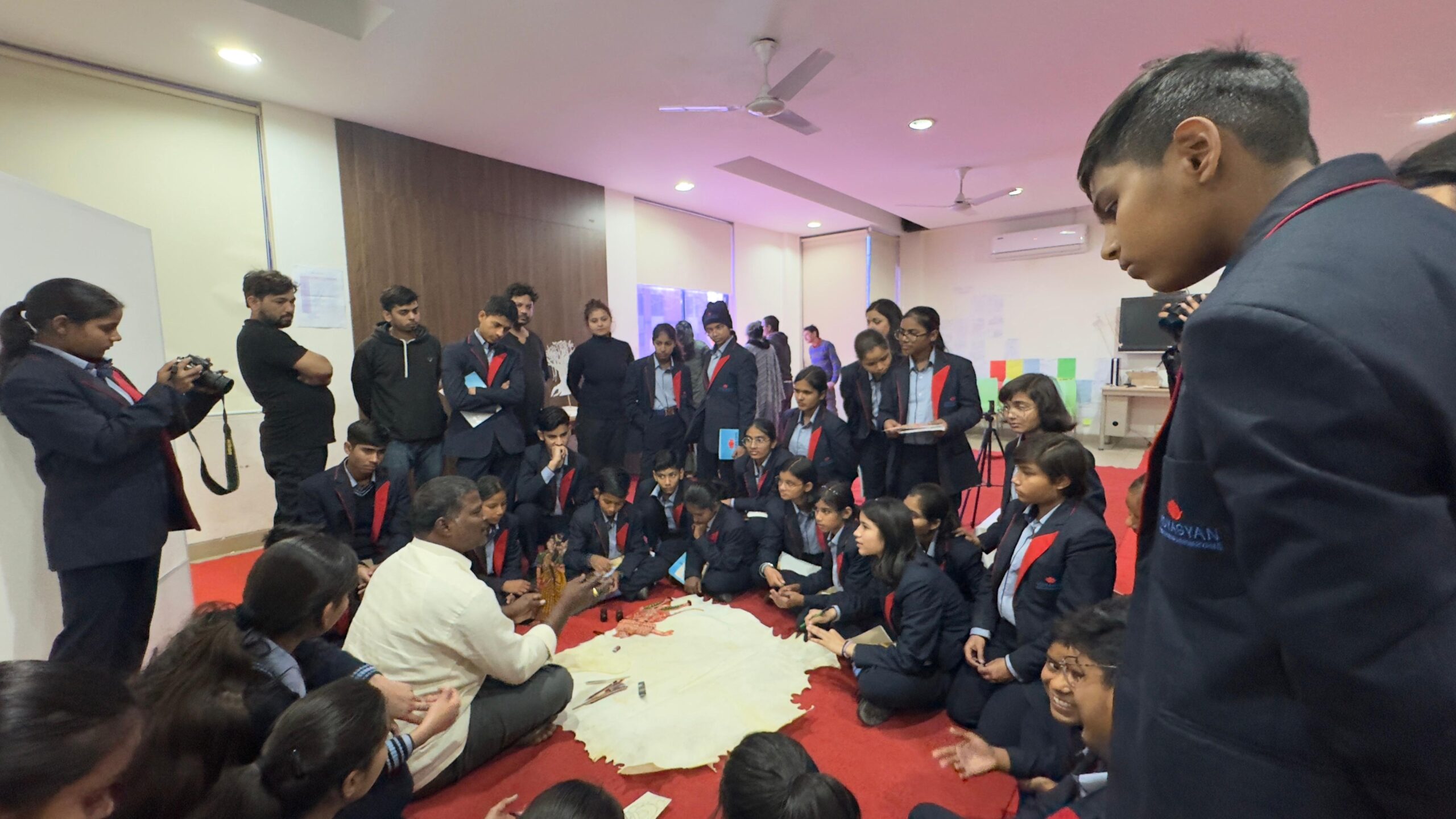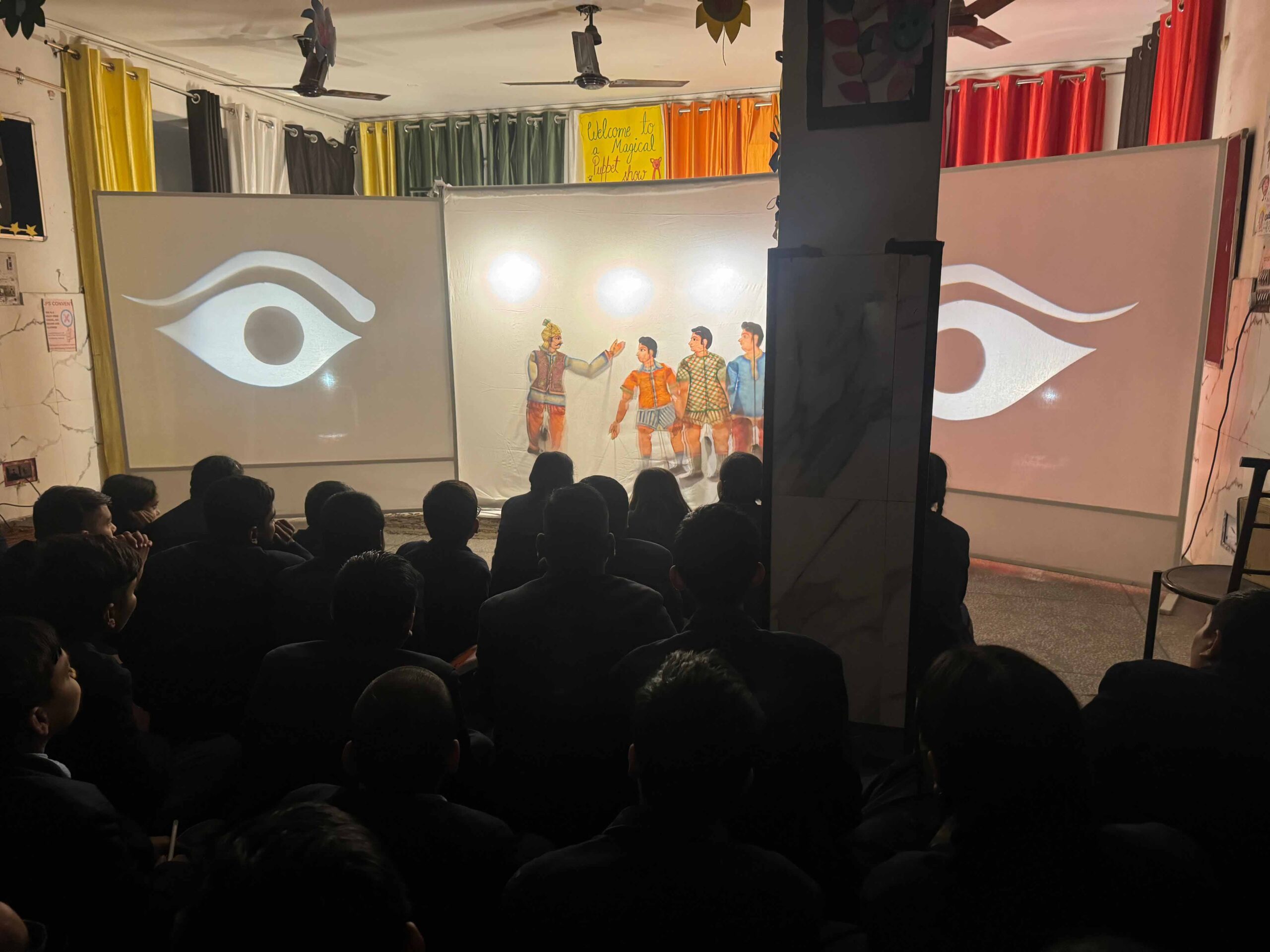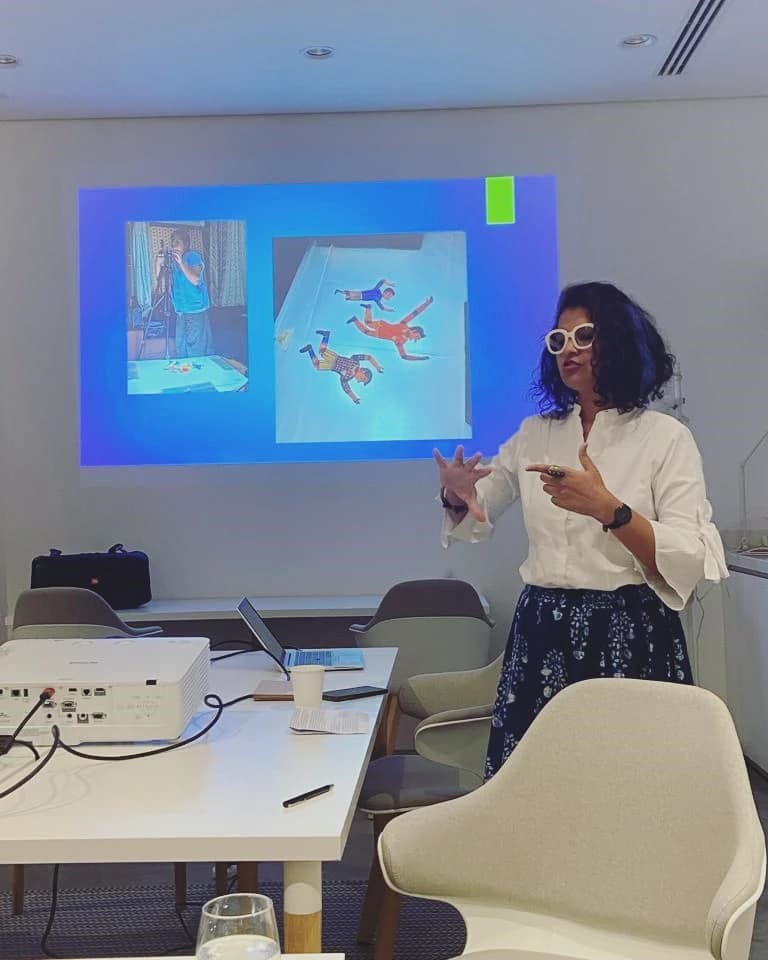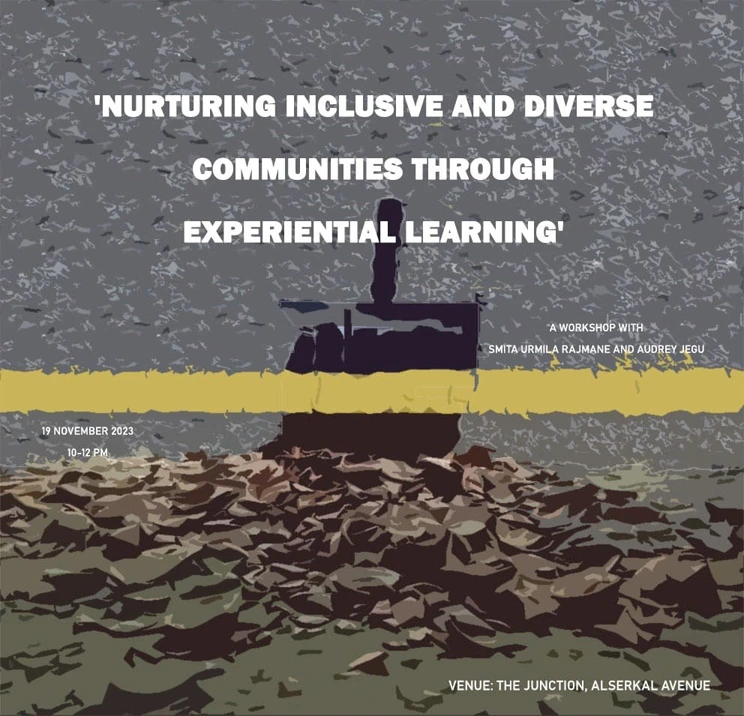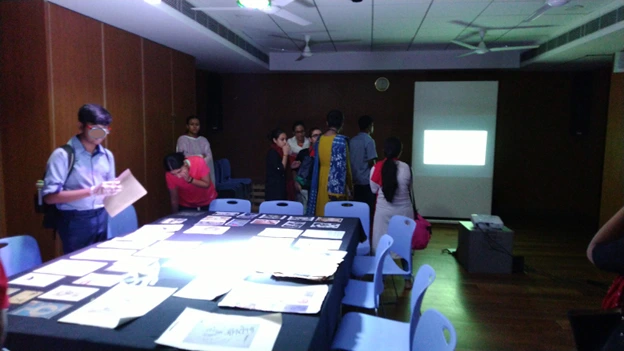Kahani Pani Ki – The Politics of Thirst
Kahani Pani Ki – The Politics of Thirst is a performance-based, interactive art project that interrogates caste through the politics of water. Inspired by Dr. B.R. Ambedkar’s autobiographical account Waiting for a Visa, the project weaves together archival research, puppetry, music, and participatory pedagogy to expose the everyday violence of caste-based exclusion.
Water—fluid, omnipresent, and essential—is paradoxically a site of deep segregation. For communities, access to water has historically been policed, denied, and weaponized, turning an elemental necessity into a symbol of systemic oppression. Through shadow puppetry and storytelling, the project resurrects histories of exclusion while carving spaces for resistance and reimagination.
Kahani Pani Ki is deeply collaborative, shaped by the artistic and intellectual contributions of diverse practitioners. The performance features traditional shadow puppetry from the Sindhe family of Nimmalakunta, a lineage of puppeteers historically engaged with leatherwork—a material both central to their craft and stigmatized within caste hierarchies. The sonic landscape of the project is enriched by Gaddar’s powerful revolutionary folk song, sung by Uma Y.G. and arranged by Chinthan Vikas, amplifying the project’s assertion of resistance and dignity. The process is further shaped by the insights of educators, facilitators, scholars, and artists, who bring critical perspectives on caste, pedagogy, and performance.
An interactive worksheet complements the performance, allowing children to engage with historical narratives and assertive ideas in a tangible way. The project is not merely about witnessing history—it is about activating dialogue. Through this immersive experience, children and audiences encounter the realities of caste discrimination, critically reflect on its persistence, and imagine pathways toward equity and justice.
Performed in schools with first-generation learners and public institutions, Kahani Pani Ki does not just tell a story—it unsettles, questions, and reclaims. It transforms water from a site of exclusion into a space for collective reflection and resistance, ensuring that the conversation on caste flows into the next generation.
Ongoing project, Pedagogy as art practice, Performance Art, Public Art

